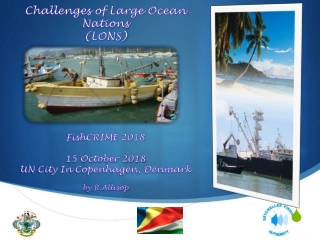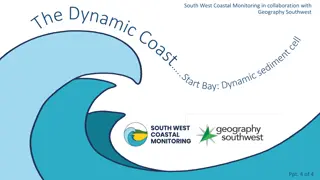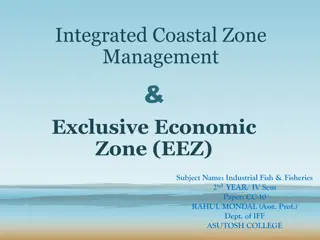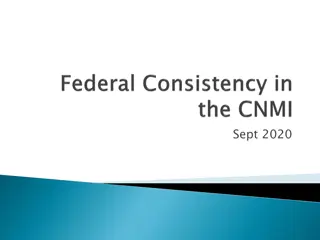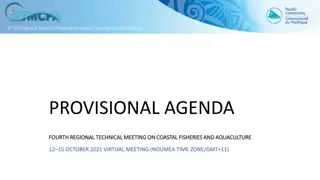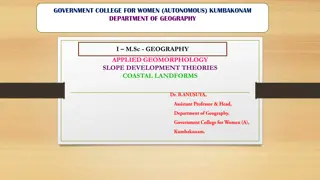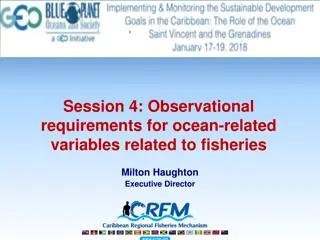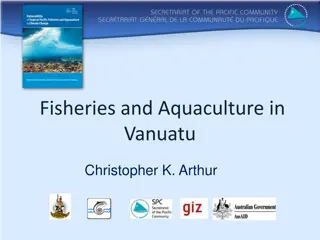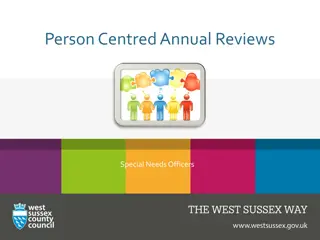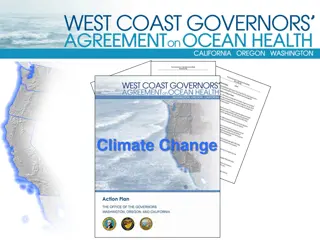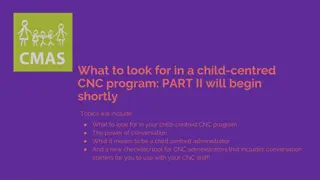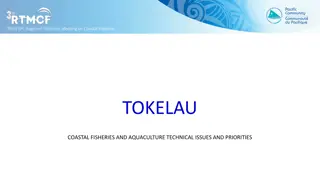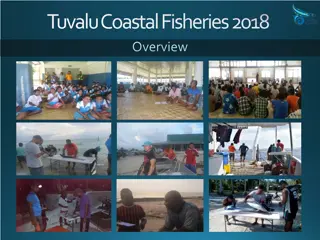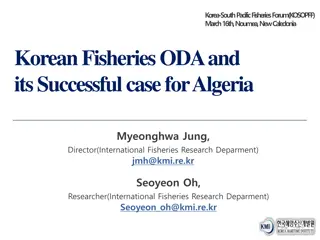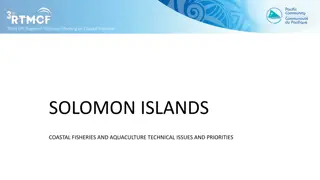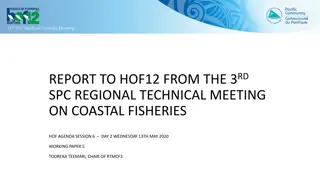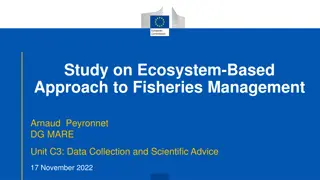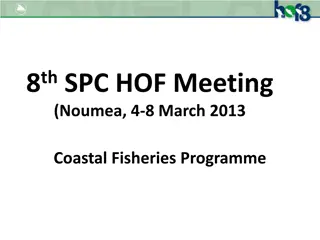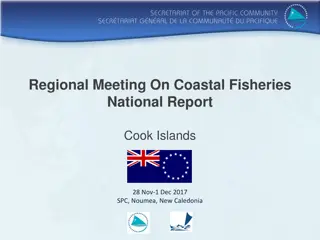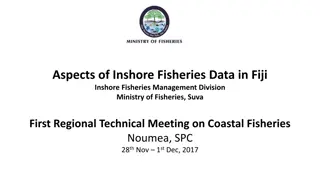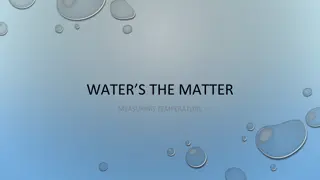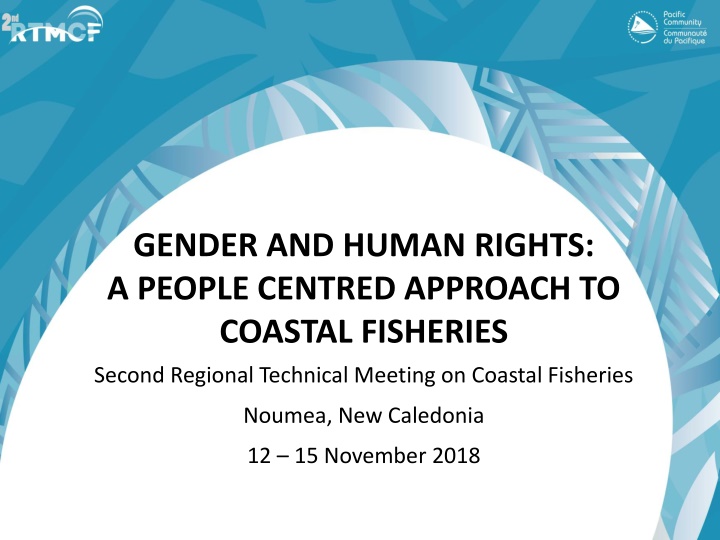
A People-Centred Approach to Coastal Fisheries
This content focuses on the importance of applying a people-centred approach to coastal fisheries, emphasizing human rights and gender perspectives. It highlights regional commitments to gender equality, youth, disability rights, and cultural aspects in the context of coastal fisheries development and sustainability.
Download Presentation

Please find below an Image/Link to download the presentation.
The content on the website is provided AS IS for your information and personal use only. It may not be sold, licensed, or shared on other websites without obtaining consent from the author. If you encounter any issues during the download, it is possible that the publisher has removed the file from their server.
You are allowed to download the files provided on this website for personal or commercial use, subject to the condition that they are used lawfully. All files are the property of their respective owners.
The content on the website is provided AS IS for your information and personal use only. It may not be sold, licensed, or shared on other websites without obtaining consent from the author.
E N D
Presentation Transcript
GENDER AND HUMAN RIGHTS: A PEOPLE CENTRED APPROACH TO COASTAL FISHERIES Second Regional Technical Meeting on Coastal Fisheries Noumea, New Caledonia 12 15 November 2018
Objective and expected outcomes Understand the importance of applying a people centred approach to coastal fisheries Explain the relevance of applying a human rights and gender lens to coastal fisheries Discuss the application of human rights and gender based approaches in coastal fisheries
There are national, regional, and global commitments to GESI and HR National development plan Policy on gender Policy on youth Policy on disability Policy on culture National Pacific Youth Framework Regional Cultural Strategy Pacific Leaders Declaration on Gender Equality Pacific Platform for Action on Gender Equality and Women s Human Rights Pacific Framework for the Rights of Persons with Disability Framework for Resilient Development in the Pacific Regional Universal Declaration of Human Rights Convention on the Elimination of all forms of Discrimination against women Convention on the Rights of the Child Convention on the Rights of People with Disabilities Sustainable Development Goals S.A.M.O.A Pathway International
1. WHY a people-centre approach? Setting the scene
What is coastal fisheries about? Food security Economic development and livelihoods Protection of marine resources
People centred approaches at the heart of fisheries mandates SPC Strategy FAO voluntary guidelines New Song for Fisheries PEUMP Project document
What our gender & HR commitments say about fisheries?
Recognize, resource and support programmes that advance gender equality and women s rights in all areas of economic activities, including fisheries and aquaculture, to address food security and nutrition, and meaningfully facilitate women s contributions to small-scale and artisan fisheries and aquaculture, commercial fisheries, and the use and care of oceans and seas; 58thsession of the Commission on the Status of Women
Who we are is defined by social norms To be resilient we need . Good house Live in a safe place Water Income/savings Relationships Information Rights Clean environment Roles Activities Responsibilities Mobility Behaviours Relationships Status Entitlements
This is where equality lies Treating everybody the same or giving the same amount of resource Sometimes giving different treatment to compensate for disadvantages
UN Common Understanding of HRBA GOAL: All programs of development cooperation, policies and technical assistance should further the realisation of human rights as laid down in the Universal Declaration of Human Rights and other international human rights instruments PROCESS: Human rights standards and principles should guide all development cooperation and programming in all sectors and phases of the programming process OUTCOMES: Development cooperation contributes to the development of the capacities of duty bearers to meet their obligations and / or of rights-holders to claim their rights
P PARTICIPATION L LINK TO RIGHTS A ACCOUNTABILITY N NON-DISCRIMINATION E EMPOWERMENT T TRANSFORMING SOCIAL NORMS (SOURCE: SPC RRRT 2018)
Mainstreaming gender equality and social inclusion ... Before we make a decision, we have to think about the needs and concerns of different segments of the population (women and men or all diversities) and assess how our decisions are going to affect them Would this support women and men of all diversity equitably ? Would this promote equality? When we design a program or services we have to think on the impacts those will have on different segments of the population (women and men of all diversities), especially people who tend to be forgotten or more silent Would this empower people? Would this protect cultural heritage? When we implement program and services, we have to make sure they are accessible to all segments of the population (women and men of all diversities) and benefit them
Commitment and leadership Systems Capability and capacity 1. Sex-disaggregated data A. Gender equality policy and commitments 2. Gender mainstreaming strategies to produce sex disaggregated data and use gender statistics 3. Annual gender equality reports B. Gender/ women's divisions to conduct gender analysis 4. Gender focal points to develop gender responsive policies, strategies and programs C. An inclusive national development strategy 5. Gender responsive organisational culture to deliver gender responsive services 6. Accountabilities of the Heads of Ministries to report on outcomes with a gender perspective D. Political Leadership on Budgets and Gender Impact Assessment 7. Gender analysis 8. Gender analysis in the policy cycle to generate knowledge on gender issues in the sectors of intervention

